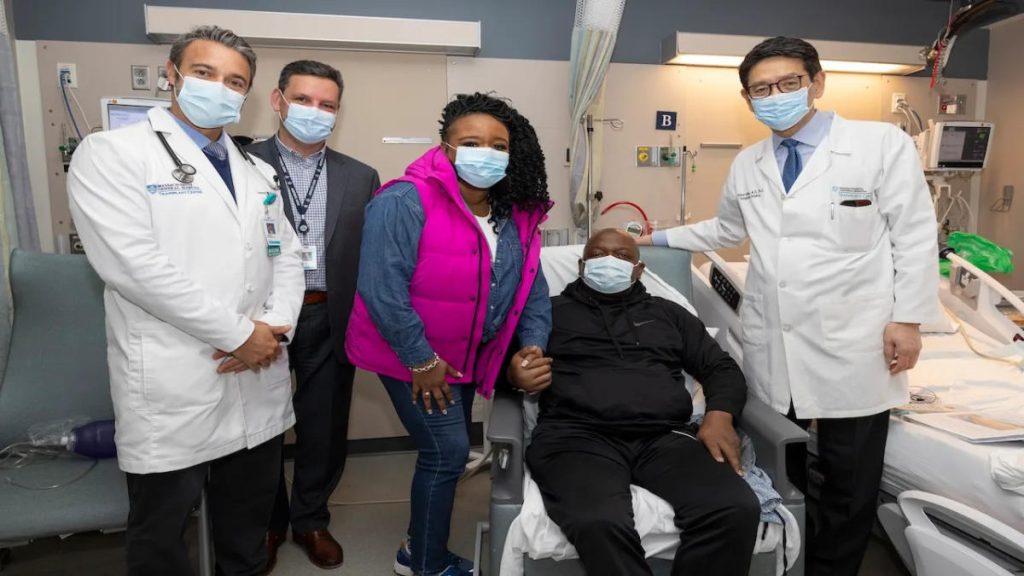A Massachusetts man, Richard Slayman, has died nearly two months after making history as the first recipient of a genetically modified pig kidney transplant at Massachusetts General Hospital. Despite predictions that the pig kidney would last for at least two years, Slayman passed away, though the hospital stated that his death was not a result of the transplant. This groundbreaking procedure marked the first time a living person had received a pig kidney transplant, with past attempts being limited to brain-dead donors and heart transplants that resulted in the recipients’ deaths within months.
Slayman initially had a kidney transplant in 2018 but had to return to dialysis last year when his kidney began to show signs of failure. After facing complications with dialysis, his doctors suggested a pig kidney transplant as a solution. Slayman’s family expressed gratitude to his medical team for extending his life with the xenotransplant, stating that the additional time spent with him was cherished and will remain in their hearts. The family emphasized that Slayman underwent the procedure not only for his own benefit but also to offer hope to the many individuals awaiting life-saving transplants.
The successful pig kidney transplant that Slayman received represents a significant step forward in xenotransplantation, a field that aims to utilize animal organs and tissues to heal human patients. Traditional attempts at xenotransplantation have been thwarted by the body’s immediate rejection of foreign animal tissue, but recent advancements in genetically modified pigs have shown promise in overcoming this barrier. With over 100,000 people on the national transplant waiting list, the potential for pig organs to alleviate the shortage of human donors is substantial, particularly for kidney patients, who make up the majority of those awaiting transplants.
Despite Slayman’s passing, his family expressed pride in his role as a pioneer in the field of xenotransplantation, noting that his hope and optimism will endure as a lasting legacy. The family’s statement reflects a sense of gratitude towards Slayman’s medical team and a recognition of the impact that his participation in the groundbreaking procedure may have on future patients in need of transplants. This case underscores the ongoing challenges faced by transplant patients and the urgent need for innovative solutions to address the critical shortage of donor organs.
The broader implications of Slayman’s pig kidney transplant extend beyond his individual case, offering hope to the thousands of individuals waiting for life-saving transplants. By pushing the boundaries of medical science and xenotransplantation, Slayman’s experience has the potential to pave the way for future advancements in the field, ultimately benefiting patients in need of organ transplants. As researchers continue to explore new approaches to xenotransplantation, Slayman’s legacy serves as a reminder of the importance of innovation and collaboration in addressing complex medical challenges.
In conclusion, Richard Slayman’s groundbreaking pig kidney transplant marked a significant milestone in the field of xenotransplantation, though his subsequent passing highlights the ongoing challenges faced by transplant patients. His family’s gratitude towards his medical team and commitment to raising awareness about organ donation underscore the importance of continued research and innovation in the field of transplantation. As advancements in genetically modified pigs offer new possibilities for addressing the organ shortage crisis, Slayman’s legacy as a pioneering transplant recipient serves as an inspiration for patients, healthcare providers, and researchers alike.












